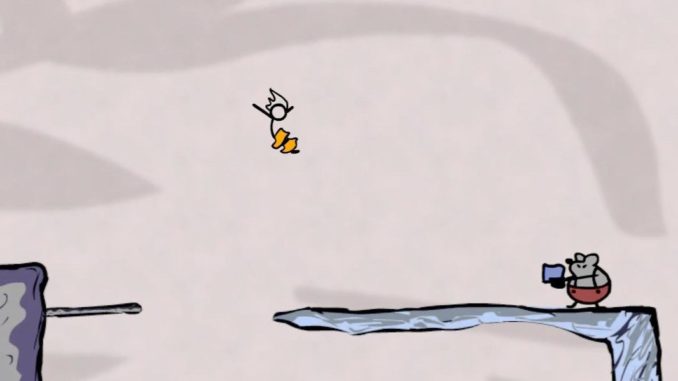
By the time Abode announced in 2017 that it would kill Flash, it was already dying. Developers shifted to HTML5. The biggest browsers—Chrome, Safari, and Microsoft Edge—limited Flash or turned it off by default. Flash was and continues to be rife with security issues and exploits. But while beneficial for internet safety at large, losing Flash came at a cost. The vibrant digital artifacts created using the technology would soon become obsolete.
After the announcement it dawned on Latimore that he didn’t know anyone making any effort to preserve, in his words, “this unmatched historical artifact of 2000s internet society.” A little Googling left him shocked at how difficult it was to find public preservation plans on Flash portals like Armor Games and NotDoppler. Initially, he intended to just back up those portals. As his project attracted attention from like-minded game preservationists, he was approached by what is now a team of 30 developers in Flashpoint’s Discord group of over 7,000 contributors and fans.
To preserve those Flash games, “curators” search for and submit candidates for the archive, while others add museum-style descriptions for the games, test them out, and build out the custom open-source front end. Latimore says that 90 percent of the games consist of only one Shockwave Flash file, without locks or additional assets, making them relatively easy to port.
“The rest is where it gets tricky,” he adds. “Everything from site locks that prevent the games from being played anywhere but on their official website, multiple resources that load after the first SWF [Shockwave Flash file format] that pretty much every web crawler can’t get to, or games that require servers for things like custom levels, or even to be played at all, are the tricky ones.”
To help get around those issues, says project contributor Sonam Ford, Flashpoint didn’t exactly make a Flash emulator—software that lets a computer mimic another system. It’s an internet emulator. Flashpoint uses a local proxy server setup to convince games they’re running on their original sites, “bypassing site locks and other protections that would normally prevent the games from running offline,” Ford says. “We use Adobe’s official Flash projectors, which will run stand-alone even after Adobe discontinues Flash support,” he adds. “It’s important to note that Adobe discontinuing support for Flash doesn’t mean that Flash will stop running on your computer after it’s set up properly.”
Flashpoint isn’t the only organization preserving Flash games. Newgrounds launched Newgrounds Player, a desktop app that plays Flash games that no longer work in-browser. (Adobe gave Newgrounds a license to distribute the Flash player as part of it.) Addicting Games will let users play their 5,000-plus Flash games locally on their computers, and is porting some of their classic Flash games to HTML5. Other game developers are individually porting their own games to mobile, console, and PC. However, Flashpoint works entirely offline, which keeps the games safe from the shifting tides of internet software.
(Flashpoint’s removal from the internet should also help insulate it from the security flaws that have plagued Flash’s online existence, and that will only get worse after Adobe pulls support. “In a controlled offline environment there’s not much that can be done to exploit them,” says Flashpoint contributor Alejandro Romanella.)
On top of technical demands, game preservationists face an uphill battle against copyright law. Imagine if you made a painting, but the brushes, paint, paper, and image were all licensed. This is the challenge: playing old games requires owning or modifying proprietary hardware and software.
“The early history of game archiving is 100 percent pirates,” says Alex Handy, director of the Museum of Art and Digital Entertainment. “The Atari ST—a computer system from the mid ’80s—the only reason we have all the software for that system is because pirates cracked it, compressed it, and put it on floppy discs.” Handy hopes that Flash games can avoid the fate of silent films, 75 percent of which are lost forever.
